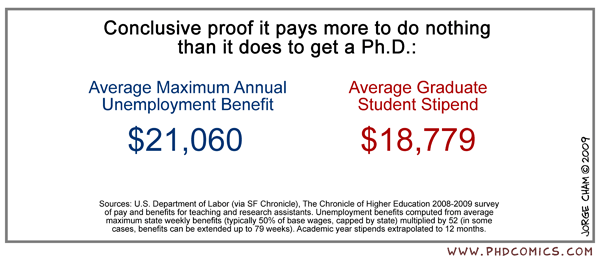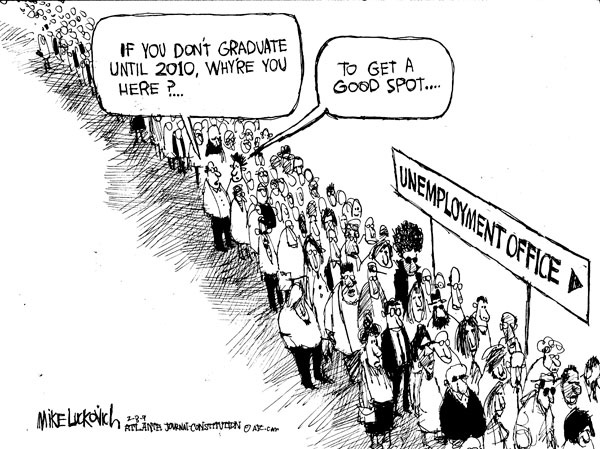(This is an excerpt from the first chapter of my dissertation: Structural and
Functional Properties of Environmental Education and Literacy in Texas: A
Multi-Scaled Approach to Identifying Patterns among Organizations and Effects
of Nature Experiences on Literacy Levels of Undergraduates. 2013. Jenny D. Lloyd-Strovas, Ph.D.)
Humans depend on
healthy ecosystems to provide water, energy, and food so that we can have a
high quality of life. Yet, we are changing the natural world at an
unprecedented rate, and the prevalence of human disease and ecosystem
degradation is increasing (Pimentel, 2007). Below are a few challenges that we
face as a global community and how those challenges affect our well-being.
·
These
examples indicate a growing gap between the natural environment and society. This
gap is environmental illiteracy and there are many approaches to address this
issue. Government policy is a top-down approach that can be used at varying
scales – local, regional, national, or international. For example, DDT (dichlorodiphenyltrichloroethane), a commonly used
insecticide in the mid-twentieth century, was banned by the U.S. in 1972 (EPA,
1975) and internationally in 2004 (Stockholm Convention, 2008). Grassroots and
humanitarian efforts are bottom-up approaches which start at a small scale but
can grow into large, international efforts. For example, Earth Day is a
grassroots initiative that was first celebrated in 1970 by a few U.S. cities
and is now celebrated in more than 175 countries every year (Earth Day Network,
2013).
Environmental
initiatives were common in the 1970s and should have resulted in a society
which understood the value of our natural resources. Yet, the U.S. population
is largely ignorant and misinformed about the great number of impending
environmental threats. American adults cannot pass a simple quiz on
environmental issues (Coyle, 2005). Our country’s K-12 students rank far behind
other countries in math and science (National Center for Education Statistics,
2007). Forty percent of Americans do not accept evolutionary theory, despite
conclusive scientific evidence (Miller et al., 2006). As a society we need to
understand ecological concepts, value our natural resources, and behave in a
way that fosters stewardship and sustainability.
Environmental
education offers a multi-faceted approach for bridging the gap between society
and the natural environment (Hart, 2007). Environmental education is defined as
a discipline which “teaches children and adults how to learn about and
investigate their environment and to make intelligent, informed decisions about
how they can take care of it” (Environmental Education and Training
Partnership, EETAP, 2010; North American Association for Environmental
Education, NAAEE, 2013). This discipline is implemented at many different
scales, for example, geopolitical structures, formal or informal education,
various age groups, and public or private institutions. The goal of
environmental education is to increase environmental literacy which is defined
as “the knowledge and understanding of a wide range of environmental concepts,
problems, and issues, a set of cognitive and affective dispositions, a set of
cognitive skills and abilities, and the appropriate behavioral strategies to
apply such knowledge and understanding in order to make sound and effective
decisions in a range of environmental contexts” (NAAEE, 2011).
Climate
change, deforestation, an increasing human population, a decrease in sanitary
water sources, excessive use of unsustainable energy sources, pollution, and a
loss of biodiversity have an effect on human health, our economy, and our overall
well-being. To address these concerns, we must have a well-educated society
which understands environmental issues, cares about our natural resources, and
is willing to work toward a sustainable future. Environmental education is a
multi-faceted approach to creating environmentally literate citizens who have
the knowledge and skills to develop solutions for anthropogenic environmental
issues.
References
- Burdette, Hillary L., M.D., M.S.;
and Robert C. Whitaker, M.D, M.P.H. (2005). “Resurrecting Free Play in
Young Children: Looking Beyond Fitness
and Fatness to Attention, Affiliation and Affect.” Archives of Pediatrics & Adolescent Medicine. 159(1):46-50.
- Carpenter, D.O.,
Arcaro, K.F., & Sprals, D.C. (2002). Understanding the human health effects
of chemical mixtures. Environmental
Health Perspectives. 110:25-42.
- Chivian, E. (2002).
Biodiversity: its importance to human health. Center for Health and Global
Environment. Harvard Medical School. Retrived March 14, 2013 from: http://env.chass.utoronto.ca/env200y/ESSAY04/Biodiversity.pdf.
- Coyle, K. (2005).
Environmental Literacy in America. The National Environmental Education and
Training Foundation: Washington, DC.
- Earth Day Network.
(2013). Earth Day: the history of a movement. Earthday.org. Retrieved March 9,
2013 from: http://www.earthday.org/earth-day-history-movement.
- Environmental Education
and Training Partnership. (2010). What is environmental education? Retrieved
March 2, 2013 from: http://www.eetap.org/pages/dynamic/web.page.php?page_id=107&topology_id=21&eod=1.
- Environmental
Protection Agency (EPA). (1975). DDT: a review of scientific and economic
aspects of the decision to ban its use as a pesticide. U.S. Environmental
Protection Agency. Washington, DC.
- Floriani, V., & Kennedy, C.
(2008). “Promotion of physical activity in children.” Current Opinion in Pediatrics, 20(1):90-95.
- Food and Agriculture
Organization. (2001). State of the world’s forests 2001. Food and Agriculture
Organization of the United Nations. Rome, Italy. Retrieved March 5, 2013 from: http://www.fao.org/forestry/sofo/en/.
- Hart, P. (2007).
Environmental Education (Chapter 24). Handbook
of Research on Science Education. Eds: Abell, S.K, & Lederman, N.G.
Routledge: New York, NY.
- Intergovernmental Panel
on Climate Change (IPCC). (2007). IPCC Fourth Assessment Report: Climate Change
2007. Working Group II: Impacts, Adaptation, and Vulnerability. Retrieved March
5, 2013 from: http://ipcc.ch/publications_and_data/ar4/wg2/en/ch1s1-1-2.html.
- Kaplan, R. (2001). The nature of the
view from home: psychological benefits. Environment
& Behavior. 33(4):507-542.
- Kellert, Stephen R. (2005). “Nature
and Childhood Development.” In Building
for Life: Designing and Understanding
the Human-Nature Connection. Washington, D.C.: Island Press.
- Lieberman,
G.A., Hoody, L.L. (1998). Closing the achievement gap: using the environment as
an integrating context for learning. State Education and Environment
Roundtable. San Diego, CA.
- Maller, C., Townsend, M., St.Leger,
L., Henderson-Wilson, C., Pryor, A., Prosser, L., and Moore, M. (2008). “The
health benefits of contact with nature in a park context: A review of relevant literature.”
Deakin University and Parks
Victoria.
- Miller, J.D., Scott, E.C., Okamoto,
S. (2006). Public acceptance of evolution. Science.
313:765-766.
- National Center for
Education Statistics (NCES). (2007). Highlights from PISA 2006: performance of
U.S. 15 year olds in science and mathematics literacy in an international
context. U.S. Department of Education,
Institute of Education Sciences. Retrieved September 1, 2011 from:
http://nces.ed.gov/pubsearch/pubsinfo.asp?pubid=2008016.
- North American
Association for Environmental Education (NAAEE). (2011). Developing a Framework
for Assessing Environmental Literacy.
Retrieved July 21, 2012 from:
http://www.naaee.net/sites/default/files/framework/DevFramewkAssessEnvLitOnlineEd.pdf.
- North American Association for
Environmental Education. (2013). What is environmental education? Retrieved
March 13, 2013 from: http://www.naaee.net/what-is-ee.
- Pimental, D., Wilson, C., McCullum,
C., Huang, R., Dwen, P., Flack, J., Tran, Q., Saltman, T. Cliff, B. (1997).
Economic and environmental benefits of biodiversity. BioScience. 47(11): 747-757.
- Pimentel, D.,
Cooperstein, S., Randell, H., Filiberto, D., Sorrentino, S., Kaye, B., Kicklin,
C., Yagi, J., Brian, J., O’Hern, J., Habas, A., & Weinstein, C. (2007).
Ecology of increasing diseases: population growth and environmental
degradation. Human Ecology.
35:653-668.
- Stockholm Convention.
(2008). Status of Ratifications. Retrieved March 9, 2013 from: http://chm.pops.int/Home/tabid/2121/Default.aspx.
- Thomas, C.D., Cameron,
A., Green, R.E., Bakkenes, M., Beaumont, L.J., Collingham, Y.C., Erasmus,
B.F.N., de Siqueira, M.F., Grainger, A., Hannah, L., Hughes, L., Huntley, B.,
van Jaarveld, A.S., Midgley, G.F., Miles, L., Ortega-Huerta, M.A., Peterson,
A.T., Phillips, O.L., Williams, S.E. (2004). Extinction risk from climate
change. Nature. 427:145-148.
- United Nations
Department of Economic and Social Affairs. (2009). Population Newsletter. 87.
Retrieved March 5, 2013 from: http://www.un.org/esa/population/publications/popnews/Newsltr_87.pdf.
- United Nations Energy
(2013). Energy Access. Retrieved March 14, 2013 from: http://www.un-energy.org/cluster/energy_access.
- U.S. Energy Information
Administration. (2013). Short-term energy outlook: global crude oil and liquid
fuels. Retrieved March 14, 2013 from: http://www.eia.gov/forecasts/steo/report/global_oil.cfm.
- World Health
Organization (WHO). (2012). Global analysis and assessment of sanitation and
drinking-water: the challenge of extending and sustaining services. WHO Press.
Switzerland. Retrieved March 5, 2013 from: http://whqlibdoc.who.int/publications/2012/9789241503365_eng.pdf.
|




